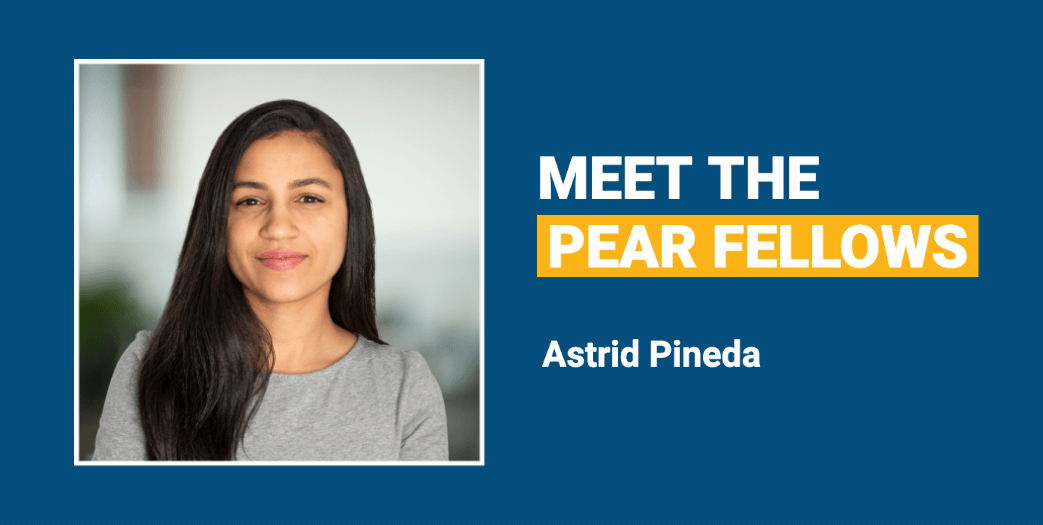As one of the six doctoral students in the first cohort of the Postsecondary Education Applied Research (PEAR) Fellowship, Astrid Pineda comes to Teachers College with experience in international education and a curiosity about how to help underperforming education systems better serve their students. She is interested in studying education policies that improve economic opportunity among disadvantaged students, including in the developing world.
Pineda, a student in TC’s Economics and Education Program, holds an MPA/ID from the Harvard Kennedy School and a BA in economics from Pontificia Universidad Católica Madre y Maestra in the Dominican Republic.
Read more about her below and learn about the other PEAR fellows at #PEAR.
What were you doing before you became a PEAR fellow?
I was working as a research fellow for the Inter-American Development Bank, where I supported the evaluation of the bank’s development work in countries such as Mexico and Haiti. Before that, I worked as a research associate for J-PAL, supporting the impact evaluation of several education initiatives in the Dominican Republic.
What would you like to accomplish while you’re a PEAR fellow?
I would like to continue learning about and doing research on education policy, hopefully in collaboration with my fellowship peers.
What does the PEAR fellowship mean for your career?
The PEAR fellowship has given me access to great opportunities to learn from other academics in my field and strengthen my research skills. It has also provided me with access to an excellent network of researchers and peers I hope to collaborate with in the future.
What are your research interests?
I am interested in applying rigorous methods to understand what kind of education policies or initiatives can be most effective in improving learning outcomes at scale, particularly in the developing world, where learning levels are extremely low and there seems to be less rigorous evidence on effective policies.
In the long term, I would like to do work on the intersection between education and economic opportunity and understand what kind of policies are most effective in improving upward mobility and long-term outcomes for disadvantaged students.
What would you like to do after your fellowship ends?
I would like to continue doing applied research that can be relevant for policymaking, particularly in the developing world, either working in academia or at an international organization.
What initially attracted you to the field? What motivates you to stay in it?
I have always wanted to understand why education systems underperform and how we can improve these systems at scale. Part of this comes from my upbringing in the Dominican Republic, a developing country that in the last 10 years has consistently ranked at the bottom in the Programme for International Student Assessment, the Organisation for Economic Co-operation and Development’s international assessment program, despite stellar economic growth.
As a firm believer in the role of education in improving social mobility, I wanted to understand how to improve access to quality education among disadvantaged students. As an undergraduate, I quickly realized that rigorous evidence to improve education policy in my home country and the greater region was lacking. This, and a passion for quantitative analysis, made me realize that this was an area I could contribute to.




